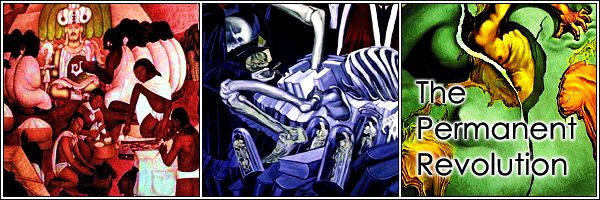I've been reading books far faster than I've been able to review them, so it's catchup time. John A. Kirk's
Martin Luther King, Jr. is a nice slim biography written as part of the 'Profiles in Power' series. The emphasis, as the series title indicates, is on what MLK actually did, the decisions he made and their context, and the nature of his power as a spiritual-moral leader (he never held any public office). The book is not about King's upbringing, personal life or non-political controversies (primarily, allegations about plagiarism in his PhD dissertation and sexual affairs). At only 248 pages, the book has no space for that, but Kirk does provide a helpful, seemingly comprehensive, bibliographical essay which points the interested reader towards the right sources.
I remember of MLK, from what they taught us in school, as a rather abstract 'activist' who with due effort and diligence, managed to lead a movement which persuaded and pressured America into desegregating the South before being assassinated. Kirk effectively breaks down King's activism into it's constituent campaigns and the civil rights movement into it's various, often competing, organizations.
Kirk describes a very young (27!), MLK being thrust into a national leadership position by the surprising success and media coverage of his very local 1955-6 Montgomery Bus Boycott. The contingency, almost the accident, of his leadership is made clear by the fact that he was chosen to lead the boycott because competing local black leaders saw him as the least politically ambitious, and therefore, less threatening to them.
King and his movement are both very inexperienced. They seem to drift along, trying different things, searching for the right strategy that would rouse the federal government to intervene in the South to guarantee black Americans their constitutional rights. The strategy King usually used was somewhat crude: to intervene massively in a particular locale and demand, say, desegregation through a sit in, or attempt to register black voters en mass, in an attempt to force the hand of local white authorities. The paradox was that if local whites cooperated somewhat, or responded firmly but largely peacefully, King was powerless. Only when activists were jailed or attacked by whites or local authorities did this provide King with the media coverage necessary to shock northern liberals and congress into action.
One can imagine the tensions, then, that operated for King when he was theatrically using local issues to forward a national platform. Especially when the goal at times seemed to be to nonviolently goad local white authorities into some brutal shocking action against peaceful activists. In many of King's campaigns, local and national goals could not be reconciled. In Albany, Georgia (61-2), local authorities responded largely without violence to attempts by King to register black voters, merely saying no, and packing activists into jails around the county. In St. Augustine, Florida (64), King vowed to not allow that city to celebrate it's quadrecentennial (the oldest city in the US, apparently) as a segregated city. However, the rather small local black community often saw King as doing little more than stirring up trouble.
 "I have a dream..."
"I have a dream..."In fact, King's local campaigns often failed, he was better on the national stage. The iconic 1963 March on Washington and 'I Have a Dream" speech of course stands out. Here, his power is that of sheer rhetoric, in the rousing, energetic, millenarian style of black American preachers (something most northern whites had never seen or heard before).
King's most successful campaigns were predicated on white violence. And it existed. Black and white activists who attempted interracial bus trips across the South, "freedom rides", would find themselves surrounded by angry mobs upon reaching their destination and then beaten with crowbars, chains and bats (the police, who knew of these rides in advance, usually arrived conveniently late).
That the civil rights movement's success often depended on suffering violence, can be seen as Christ-like, ironic or perverse depending on how you look at it. In the event, nothing did more to shock national opinion into passing a civil or voting rights act than, say, having 4 black girls killed by white terrorists in the 1963 16th Baptist Street Church bombing...
 "May I now say a word to you, the members of the bereaved families? It is almost impossible to say anything that can console you at this difficult hour and remove the deep clouds of disappointment which are floating in your mental skies. But I hope you can find a little consolation from the universality of this experience. Death comes to every individual. There is an amazing democracy about death. It is not aristocracy for some of the people, but a democracy for all of the people. Kings die and beggars die; rich men and poor men die; old people die and young people die. Death comes to the innocent and it comes to the guilty. Death is the irreducible common denominator of all men."
"May I now say a word to you, the members of the bereaved families? It is almost impossible to say anything that can console you at this difficult hour and remove the deep clouds of disappointment which are floating in your mental skies. But I hope you can find a little consolation from the universality of this experience. Death comes to every individual. There is an amazing democracy about death. It is not aristocracy for some of the people, but a democracy for all of the people. Kings die and beggars die; rich men and poor men die; old people die and young people die. Death comes to the innocent and it comes to the guilty. Death is the irreducible common denominator of all men."...or brutal police action against marches in Selma, Alabama 1965. In his struggle to maintain segregation, the white southern policeman was, when he was brutal, when he used barking dogs, batons and hoses, his own worst enemy.
 Herblock on the brutal action of Alabama state troopers in Selma.
Herblock on the brutal action of Alabama state troopers in Selma.Ultimately, the strategy worked, and soon formal discrimination in the South was over with desegregation and the black ballot. Having achieved this and earned himself a Nobel Peace Prize, King begins to look a lot more ineffectual. Getting ones followers beaten up on camera is not a viable long-term political strategy. It's no surprise that King started losing his grip on young politically active blacks to groups championing armed self-defense like the Black Panthers, the Nation of Islam and the Black Power movement. Indeed, as racial problems shifted from the South to the problems of the northern ghetto, where discrimination and segregation is informal not legal, King seems out of his depth. The problems were (and are!) more intractable, less dramatic, and have less obvious solutions. His campaign to improve living conditions for ghetto-dwellers in Chicago floundered when it wasn't exactly clear what he wanted the city to do. In fact, some of the participants in the devastating 1965 riots in Watts, Los Angeles could claim their strategy was more successful than King's: their neighborhoods were burned down, but their problems of urban deprivation had finally acquired the nation's attention.
It's impossible to say what King would have done had he not be assassinated but his final years were very interesting indeed. In leading the "Poor People's Campaign" he led a movement whose goals seem rather vague, but hint at massive anti-poverty and educational programs and a more social democratic America surpassing even LBJ's ground-breaking "War on Poverty". He also courageously opposed the Vietnam War as early as 1967. In doing so, he greatly risked alienating the federal government that he needed so dearly for his domestic goals. On the other hand, he perceptively noted that, regardless, the Vietnam War itself was depriving America of money for domestic programs, and that black Americans were dying there in disproportionate numbers.
King's name was sometimes trumpeted as a possible third party peace presidential candidate. That certainly would have been interesting, especially if he were still around in '72, where he might have been even a plausible Democratic candidate. Even if his chances of victory would probably be low, it would be an iconic movement-defining moment, the same way Barry Goldwater's disastrous election campaign is used by conservatives to remind themselves of their values. In the event, however, MLK was killed, triggering race riots across America and putting an end to the last great civil rights movement.
 Jesse Jackson, foreshadowing the decline of peaceful civil rights organizations and the rise of Black Power and armed self-defense, noted on King's death "You see people don't know this yet... but white folks just lost their best friend."
Jesse Jackson, foreshadowing the decline of peaceful civil rights organizations and the rise of Black Power and armed self-defense, noted on King's death "You see people don't know this yet... but white folks just lost their best friend."Kirk's work is very readable, precise and concise. The picture that emerges from it is of a King operating in a very difficult, uncertain environment, inexperienced, often blundering, having to navigate the strong tensions between the national movement and local communities, between various civil rights groups and between the respective "backlashes" of increasingly conservative white opinion and increasingly radical black youth. MLK's more idealistic and ambitious final years are of great interest as we see the signs of leader, trying to look beyond the immediate issues of Black America towards an overarching ideology of peace and social justice. What stands out most for me though, is his rhetorical flourish, always far more explicitly religious, than anything our current president has ever said. He simply spoke with passion and beauty (
American Rhetoric is a cool online sound collection of top US speeches). On April 3rd 1968, the very eve of his assassination, he spoke as a prophet worthy of a Greek tragedy:
It really doesn't matter what happens now… some began to… talk about the threats that were out—what would happen to me from some of our sick white brothers… Like anybody, I would like to live a long life. Longevity has its place, but I'm not concerned about that now. I just want to do God's will. And He's allowed me to go up to the mountain! And I've looked over, and I've seen the Promised Land. I may not get there with you. But I want you to know tonight, that we, as a people, will get to the Promised Land. And so I'm happy tonight. I'm not worried about anything. I'm not fearing any man. My eyes have seen the Glory of the coming of the Lord!Hearing those final words, I can’t help but feel like an impatient toddler who is waiting on a road trip which has dragged out several hours too long: “Are we there yet?”






